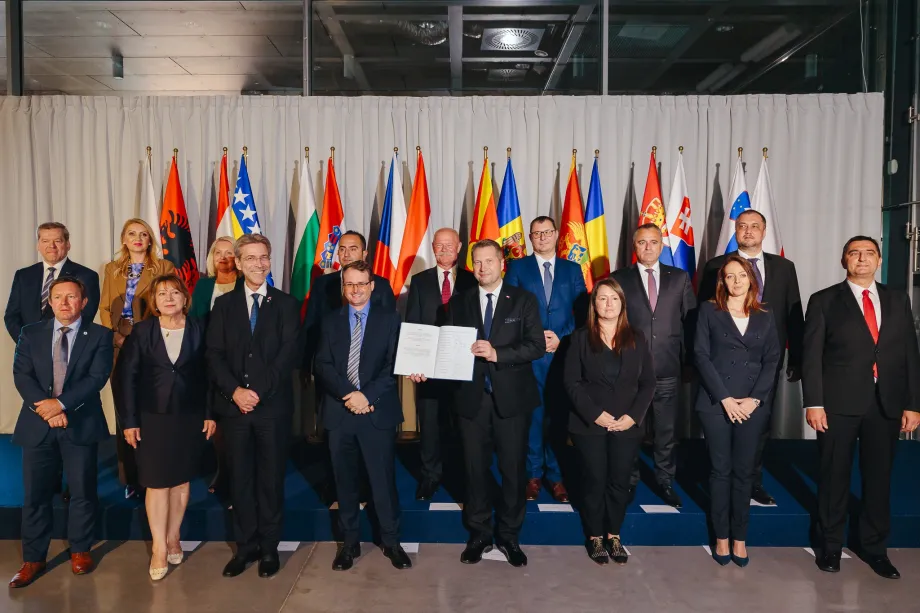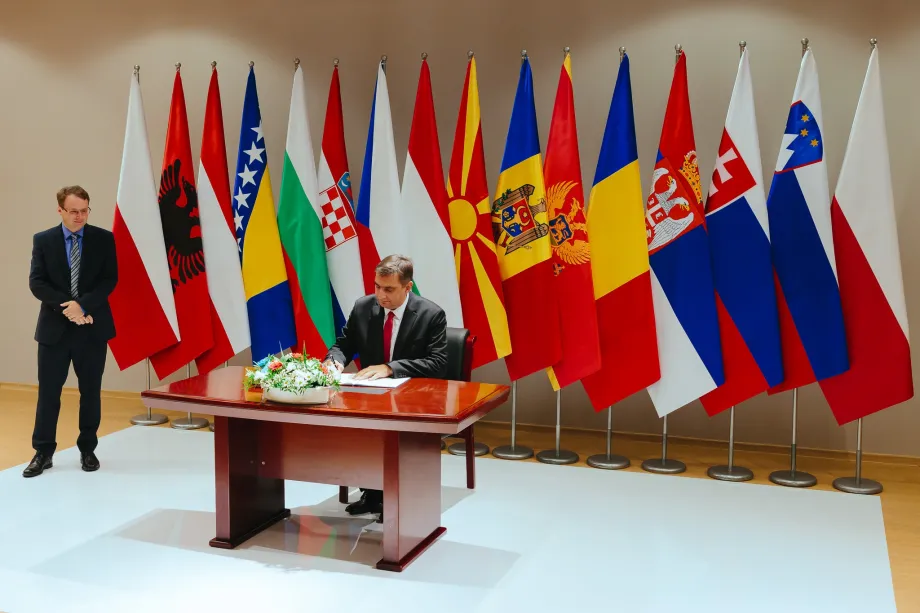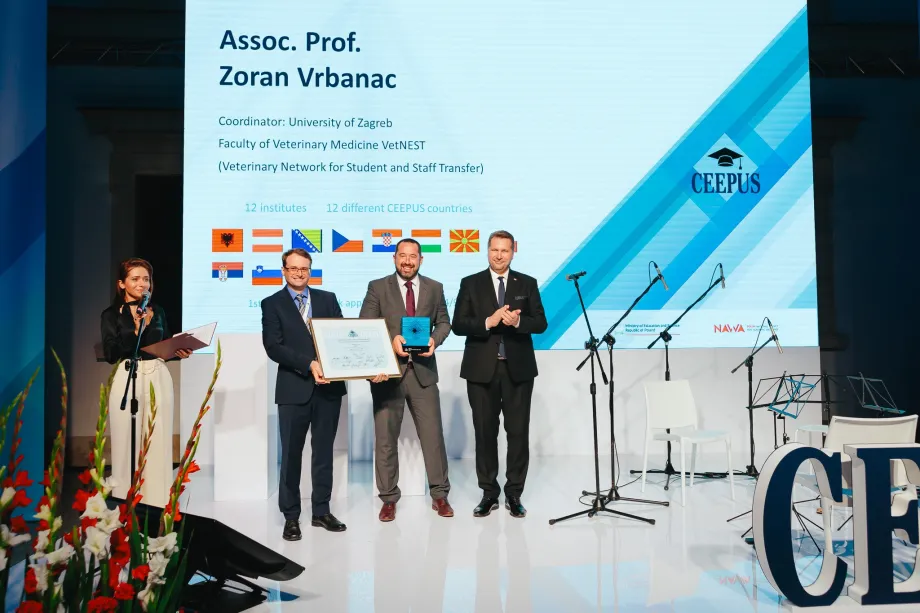CEEPUS week in Warsaw: signing of the new agreement, celebration of 30 years and awards given to the most successful networks
On September 20th 2023, CEEPUS IV, a new CEEPUS agreement that will enter into force in 2025 for seven years, was signed in Warsaw. At the grand ceremony, 30 years of implementation of CEEPUS was also celebrated, and the Minister's Awards were presented to the most successful networks, including the VetNEST network coordinated by the Faculty of Veterinary Medicine of the University of Zagreb and Professor Zoran Vrbanac.

CEEPUS - the Central European Exchange Programme for University Studies was launched in 1993, when the first contract on the CEEPUS programme was signed in Budapest. The Republic of Croatia has been a part of CEEPUS since 1995, and several agreements have been signed since then - the last and still current is CEEPUS III, in force since 2011, when it was signed for a period of seven years with seven years of extension. At the meeting held in 2019 in Zagreb, the Joint Committee of Ministers of the CEEPUS countries made a decision to continue cooperation within the CEEPUS programme after 2025.
To date, more than 82 000 student and teacher mobilities were realized through CEEPUS.
The signing ceremony of the new CEEPUS IV agreement was held in Warsaw on September 20. The agreement was signed by the State Secretary of the Ministry of Science and Education, Ivica Šušak, on behalf of the Republic of Croatia. The ceremony was also attended by the head of the Sector for the Development of Higher Education, Loredana Maravić, and representatives of the National CEEPUS Office for RH from the Agency for Mobility and EU Programmes.

The structure of the programme, cooperation within networks, participants and the framework of financing activities were retained in the CEEPUS IV agreement. It was also supplemented with new activities: participation of non-teaching staff, virtual mobility, participating states may, under certain conditions, decide on the participation of candidates from countries that are not a part of the CEEPUS agreement and programme (e.g. Ukraine). The obligation to fulfill the United Nations' sustainable development goals and commitment to the goals of the Bologna process were also included.
From the beginning of the entry into force of the CEEPUS III Agreement (2011) until today, about 3 950 outgoing Croatian student and teacher mobilities have been realized to foreign higher education institutions, while more than 3 830 foreign students and teachers have achieved incoming mobilities to Croatian higher education institutions. More than two-thirds of the mentioned incoming and outgoing mobilities were realized within the thematic CEEPUS networks, and through these mobilities, Croatian higher education institutions often developed long-term cooperations with foreign partners. The number of users of CEEPUS networks, as well as of Croatian higher education institutions, has been constantly increasing since the entry into force of the CEEPUS III Agreement. Due to its simplicity, CEEPUS has the potential to be adapted to specific needs (e.g. pandemic, war in Ukraine) on short notice and to a considerable extent.

Most successful CEEPUS networks for the years 2021, 2022 and 2023 were presented with awards for their work during the signing ceremony nad the celebration of the 30 years of CEEPUS.
The awarded network for 2022 is VetNEST (Veterinary Network for Student and Staff Transfer) – Extended, whose main coordinator is Professor Zoran Vrbanac from the Veterinary Faculty of the University of Zagreb. The VetNEST network consists of 12 universities from 12 different CEEPUS countries, and was founded in 1993. The VetNEST network maintains a high standard through the membership of its partner institutions in EAEVE (European Association of Establishments for Veterinary Education) and participates in numerous international projects.
Other awarded networks are Fostering sustainable partnership between academia and industry in improving applicability of logistics thinking (University of Novi Sad, Faculty of Technical Sciences, PhD Marinko Maslaric, for the year 2023) and Biology, Biotechnology and Food Science (Slovak University of Agriculture, Nitra, Faculty of Horticulture and Landscape Engineering, Prof. Ing. PhD. Miroslava Kacániováz in 2021).
Croatian universities actively participate in all three award-winning networks.
For the academic year 2023/2024, 7 473 mobility months were provided in 129 CEEPUS networks. The Republic of Croatia participates in the CEEPUS program with 500 months of incoming mobility, and in the academic year 2022/2023, 513 incoming mobilities were realized.
The CEEPUS programme is very successful in Croatia and it encourages cooperation and promotes already established contacts and partnerships among members of the academic community. The programme is aimed at raising the quality of education and skills of all participants.





